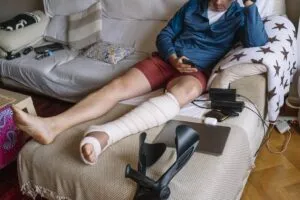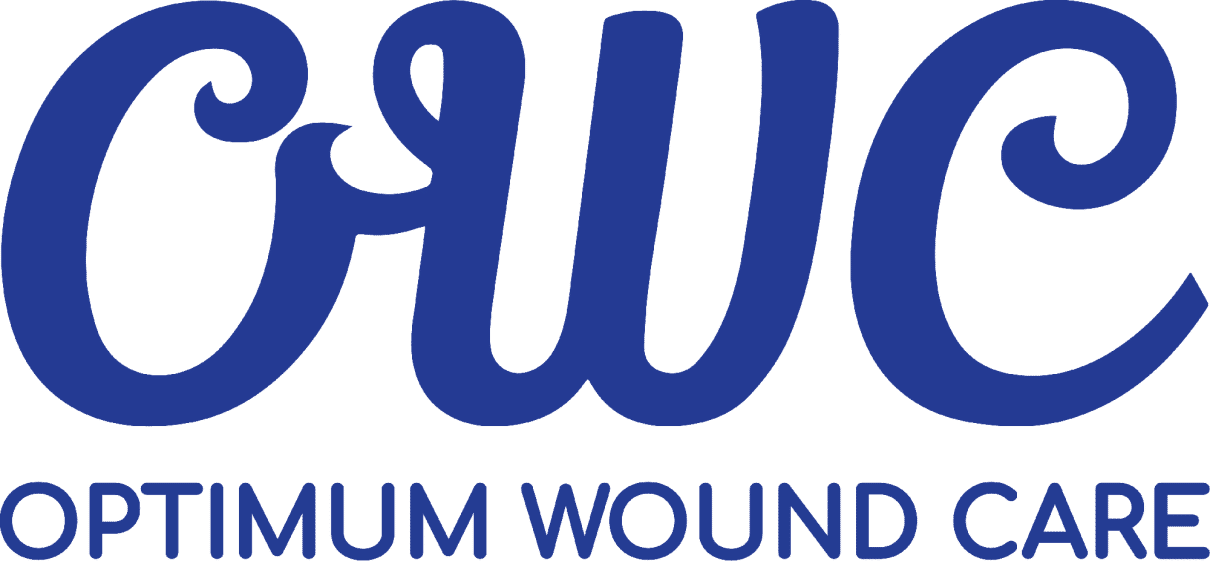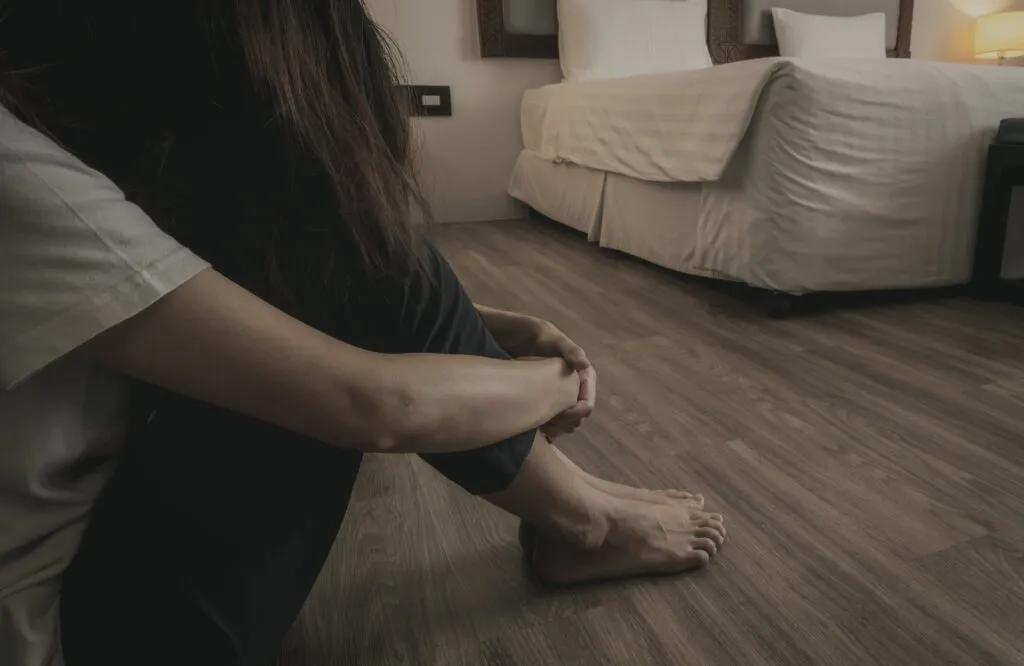The Psychological Effects of Living with Chronic Wounds
When Healing Hurts More Than the Wound
It doesn’t go away.
The wound. The pain. The appointments.
You try.
Dress it. Clean it. Hope for healing.
But it lingers.
And with it comes something deeper.
Fear. Embarrassment. Exhaustion.
You stop going out. You start avoiding mirrors.
You wonder if it’ll ever get better.
Living with chronic wounds isn’t just a physical burden—it’s emotional.
According to this NIH study, people living with long-term wounds are more likely to suffer from depression and anxiety.
They don’t just hurt. They worry. Constantly. About healing. About infections. About how people see them.
Johns Hopkins Medicine even warns that chronic wounds are among the most underrecognized sources of psychological distress in patients today.
At OWC Center, we see it every day. The look in the eyes. The silence in the room. This isn’t just about skin.
This is about identity. Dignity. Emotional survival.
Let’s talk about it.
Wound-Related Anxiety: Why Chronic Wounds Trigger Emotional Stress
It starts with the unknown. How long will this take to heal? Will it ever go away? What if it gets infected?
Wound-related anxiety stems from the constant loop of concern:
- The wound isn’t improving
- The dressing looks different
- The pain level changes
- The fear creeps in
Patients often report:
- Hypervigilance: Checking the wound multiple times a day
- Avoidance behaviors: Canceling plans to avoid embarrassment
- Disrupted sleep: From pain or worry
- Physical tension: From guarding the affected area
The Invisible Weight of Worry
Wound-related anxiety can manifest physically:
- Rapid heartbeat
- Muscle tightness
- Nausea
- Digestive issues
This isn’t just discomfort. It’s a full-body experience.
At OWC Center, we address it head-on. Our wound assessment process is designed to answer questions clearly and provide consistent updates. Because knowledge calms fear. Because communication builds trust.
And because no one should face healing alone.
Mental Health Challenges Associated with Chronic Wounds
The longer a wound stays open, the heavier the emotional burden gets.
Patients often experience:
- Depression: A feeling of hopelessness or worthlessness
- Irritability: Resulting from chronic pain or lack of progress
- Anxiety disorders: Especially surrounding medical appointments or dressing changes
- PTSD-like symptoms: For patients with traumatic injury wounds
According to CDC data, unmanaged chronic conditions are strongly linked to poor mental health outcomes.
What Wound Patients Often Say
- “I feel like I’m not myself anymore.”
- “I can’t even sleep without worrying about it.”
- “I’m scared to look at it.”
When patients don’t talk about these feelings, they fester.
That’s why at OWC Center, our team encourages open, safe discussions. We listen, without judgment. We offer referrals to behavioral health services when needed. We believe in treating the whole person.
Real Story: Henry’s Journey
Henry, 72, struggled with a diabetic ulcer that wouldn’t close. As weeks became months, his world shrank. He skipped family dinners. Stopped walking the dog. Eventually, his daughter brought him to OWC Center.
With regular wound care and mental health referrals, Henry began to heal—emotionally and physically. “I feel like I have my life back,” he said.
Healing is possible. Inside and out.
Living with Chronic Wounds and Isolation: How It Affects Relationships

It’s not just your wound that changes—it’s your world.
How Isolation Begins
- Skipping outings due to fatigue or dressings
- Avoiding intimacy out of shame
- Losing contact with friends over time
Chronic wounds can rob patients of connection. One patient described it as “being trapped in my body.”
But isolation also delays healing. Humans are social beings. Emotional health plays a vital role in physical recovery.
5 Ways to Reconnect During Recovery
- Virtual support groups for chronic wound patients
- Scheduled phone calls with loved ones
- Creative outlets like art or journaling to express feelings
- Attending appointments with a caregiver or friend
- Open communication with your provider about emotional struggles
At OWC Center, we often link patients to local peer support options, especially for those living with diabetes, vascular disease, or mobility challenges.
Recognizing When Wound-Related Emotional Distress Needs Intervention
How do you know it’s time to seek help?
Signs to Watch For:
- Feeling hopeless or emotionally numb
- Withdrawing from activities you once enjoyed
- Loss of appetite or energy
- Trouble sleeping (unrelated to wound pain)
- Panic attacks before wound care visits
If these sound familiar, you’re not alone.
According to Mental Health America, early intervention is key to recovery.
OWC Center collaborates with licensed mental health providers to support patients when wound care alone isn’t enough.
We:
- Provide compassionate communication during every visit
- Refer patients to counseling or psychiatric care when needed
- Follow up to make sure you feel safe and supported
Remember, healing is never just skin-deep.
Visit our contact page if you or a loved one needs support.
Every wound has a story but the ones that don’t heal also carry silent burdens: shame, fear, fatigue, and grief. When pain becomes part of your routine and progress feels invisible, it’s not just your skin that suffers. Your sense of self starts to erode. The world shrinks. Relationships feel harder. Hope feels further away.
And yet, the path to healing doesn’t begin and end with bandages or ointments. It begins when someone looks you in the eye and asks how you’re really doing. It grows when you’re heard without judgment. It accelerates when the body and mind receive care in tandem.
At OWC Center, we believe every patient deserves more than a protocol—they deserve compassion. Whether it’s helping you manage wound-related anxiety, supporting mental health challenges, or simply making space for your voice, we’re here. Not just to treat. To walk with you through it.
Because healing, at its core, is human.
Key Takeaways
Chronic wounds impact more than just the skin—they affect your emotional well-being.
Living with a non-healing wound can lead to stress, frustration, and even depression. The physical discomfort is only part of the story; the emotional toll is real. At OWCCenter, we provide advanced wound care that addresses both physical and mental health to support your complete recovery.
Wound-related anxiety is common, but you don’t have to manage it alone.
From constant worry about infections to fear of public outings, anxiety is a silent companion for many chronic wound patients. Our wound assessment services include education, guidance, and reassurance—because peace of mind is part of the healing process.
Mental health support is an essential part of chronic wound recovery.
If you’re feeling isolated, hopeless, or emotionally drained, you’re not alone. Our team collaborates with mental health professionals and offers compassionate care every step of the way. Discover how personalized wound management at OWC Center can support your emotional healing, too.
Social connection can accelerate healing.
Healing isn’t just physical—it’s social. Many patients withdraw from loved ones, but rebuilding connections can make all the difference. At OWC Center, we encourage caregiver involvement and peer support to help you feel seen, supported, and part of a community that cares.
You deserve care that sees the whole you.
Your wound doesn’t define you—and your treatment shouldn’t be one-size-fits-all. OWC Center offers holistic care that respects your body, mind, and spirit. From day one, our multidisciplinary team works with you to build a healing plan that truly fits your needs.
5 Related Questions Answered
1. How do chronic wounds affect mental health?
Living with a chronic wound can lead to emotional distress, often overlooked in clinical care. Patients frequently report feelings of:
- Frustration when wounds fail to heal
- Anxiety about appearance or infection risk
- Depression due to pain, social isolation, or lifestyle limitations
Here’s why it matters:
- According to studies, patients with chronic wounds are at higher risk for anxiety and depression.
- Pain and limited mobility can affect sleep and daily activities, further reducing emotional resilience.
- The emotional toll can delay healing. Stress hormones like cortisol suppress immune function, making recovery harder.
At OWC Center, we focus on whole-patient care—because wound healing isn’t just physical. Our team encourages open conversations about mental health and partners with behavioral support services when needed. Learn more about our advanced wound care services and how we customize care to improve both body and mind.
2. Why do patients with chronic wounds experience wound-related anxiety?
Wound-related anxiety is real and common. Here’s what fuels it:
- Fear of infection or worsening
- Concerns about odor, drainage, or visible dressings
- Worry about long-term disability or loss of independence
This anxiety can escalate when wounds linger for weeks or months with no clear end in sight.
Helpful strategies include:
- Regular updates from your care team about healing progress
- Support groups with others going through similar challenges
- Cognitive behavioral techniques to manage worry and improve resilience
OWC Center clinic understands the mental load chronic wounds carry. We don’t just check your skin—we check on you. Our wound assessment process includes education, emotional support, and clear expectations to reduce anxiety and build hope.
3. Can chronic wounds lead to social withdrawal or isolation?
Absolutely—and it’s more common than most realize. People living with chronic wounds often report:
- Avoiding public places due to visible dressings or odor
- Skipping social events or work from fatigue or embarrassment
- Feeling like “a burden” on friends or family
This isolation can spiral into depression, which further affects healing. Human connection and support are essential parts of recovery. That’s why we encourage:
- Caregiver involvement during visits
- Peer support programs or local community groups
- Honest dialogue between patients and providers
We’ve seen countless patients regain confidence by simply feeling heard. At OWC Center, we take the time to listen—and to help you reconnect with the people and activities you love.
4. What are signs that wound-related emotional distress needs professional help?
Not all emotional struggles are visible. But here are red flags that signal it’s time to talk to a mental health professional:
- Persistent sadness or hopelessness
- Withdrawal from daily activities or relationships
- Sleep disturbances not related to pain
- Panic attacks or heightened fear around wound care
If you—or someone you love—is showing these signs, don’t wait. At OWCCenter, we recognize the emotional wounds that come with physical ones. We offer:
- Referrals to behavioral health partners
- Compassionate communication during all stages of care
- A space where mental health isn’t stigmatized—it’s prioritized
Let us help you feel whole again. Visit our contact page to learn more about care options that support your healing journey from the inside out.
5. How can I improve my mental health while managing a chronic wound?
There’s no one-size-fits-all solution, but here are a few proven ways to improve emotional well-being during wound care:
- Build routine: Daily dressing changes can feel overwhelming. Creating a set schedule helps reduce decision fatigue.
- Practice gratitude: A simple daily journal can shift your mindset, even during difficult days.
- Stay informed: Understanding your condition reduces fear and gives back control.
- Ask for help: Whether it’s emotional or physical support, you don’t have to do this alone.
At OWC Center, our patient-first philosophy includes empowering you with tools and knowledge. Every treatment plan we create considers both the body and the mind, so you can feel stronger—inside and out.




